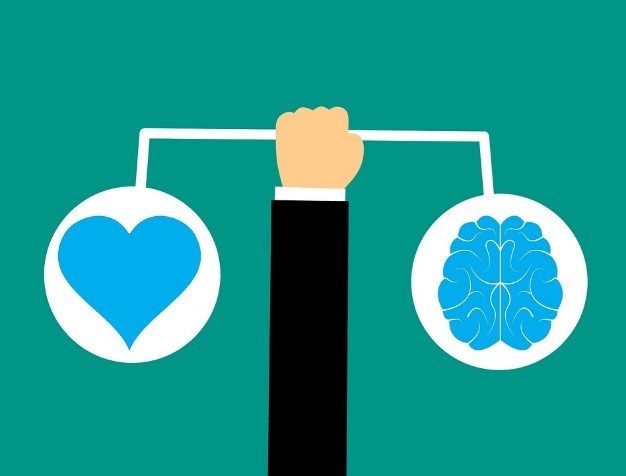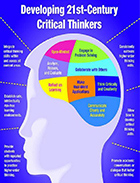Emotional Intelligence
Emotional Intelligence
 Intelligence quotient (IQ) is the ability to think and reason, and it typically deals with mental capabilities. IQ has been considered as the basis for gauging a person’s intelligence. However, recent studies have proved this notion wrong and have shown emotional
Intelligence quotient (IQ) is the ability to think and reason, and it typically deals with mental capabilities. IQ has been considered as the basis for gauging a person’s intelligence. However, recent studies have proved this notion wrong and have shown emotional
intelligence to be equally/more important than mental capabilities.
What is Emotional Intelligence?
Emotional Intelligence or Emotional Quotient (EQ) is the ability to identify, understand and manage emotions in a positive way. EQ helps to relieve stress, empathise with others, overcome challenges and reduce conflicts. The term ‘Emotional Intelligence’ was coined by Peter Salovey and John Mayer in 1990, to understand one’s own emotions and that of the others and to improve thoughts and actions. This term was further popularised by Daniel Goleman.
Attributes of Emotional Intelligence:
EQ consists of four elements –
1.Self-awareness
This refers to an understanding of one’s own personality, the strengths, the weaknesses, beliefs and emotions. Understanding one’s own self will improve confidence and will provide clarity of thought.

2.Self-management
This refers to the ability of an individual to manage his or her emotions and behaviour. Self-management will help manage emotions in a positive way and will help to adapt to changes.
3.Social awareness
This is the ability to understand and respond to the needs of others. Social awareness helps to look at different perspectives and develops empathy.
4.Relationship management
This is the ability to be aware of others’ emotions, to build strong relationship with the other person. Relationship management aims to develop interpersonal skills.
Why is Emotional Intelligence important?
Researches have shown that the smartest people aren’t always the most successful. A right combination of IQ and EQ is required for a balanced life and a well-developed personality.
-
 Emotional intelligence helps in developing life skills like empathy, communication and cooperation.
Emotional intelligence helps in developing life skills like empathy, communication and cooperation. -
It has an impact on various aspects of an individual’s life, like physical health, mental health and relationship with others.
-
It prepares an individual for the future.
-
It enables positive interactions with others.
-
It helps in earning the trust of others.
-
It goes a long way in character development.
Steps to nurture emotional intelligence in children
Family and school play an important role in nurturing a child’s EQ. Here are some ways by which EQ can be developed:
1.Identifying emotions
Addressing or helping a child in identifying his or her own emotions goes a long way in developing emotional intelligence. Identifying emotions will also teach children to understand situations that led to such emotions.
2.Encouraging eye contact
Children should be encouraged to maintain eye contact while communicating with others. Eye contact not only develops confidence but also makes the person feel important.
3.Practice reading emotions
Children and adults can practice reading emotions of others. This will develop understanding of the other person.
4.Find opportunities to help others
Researches have shown that the level of emotional intelligence can improve by helping others. When children are exposed to opportunities where they can help others, they develop a greater understanding of situations and this develops empathy.
5.Talk, Listen and Understand
Children should be encouraged to talk about their emotions. They should also be encouraged to listen to others and understand the situations around them. They should be made to view situations from different perspectives.
Studies have found people with high EQ to have a successful personality. In a nutshell, encouraging the development of emotional intelligence will help in the overall development of an individual and will keep a check on anxiety and meltdown.





















